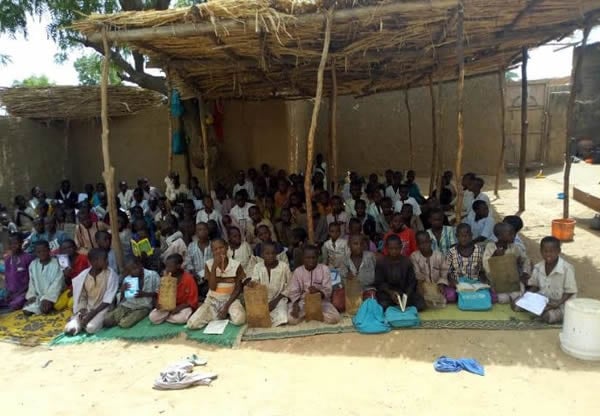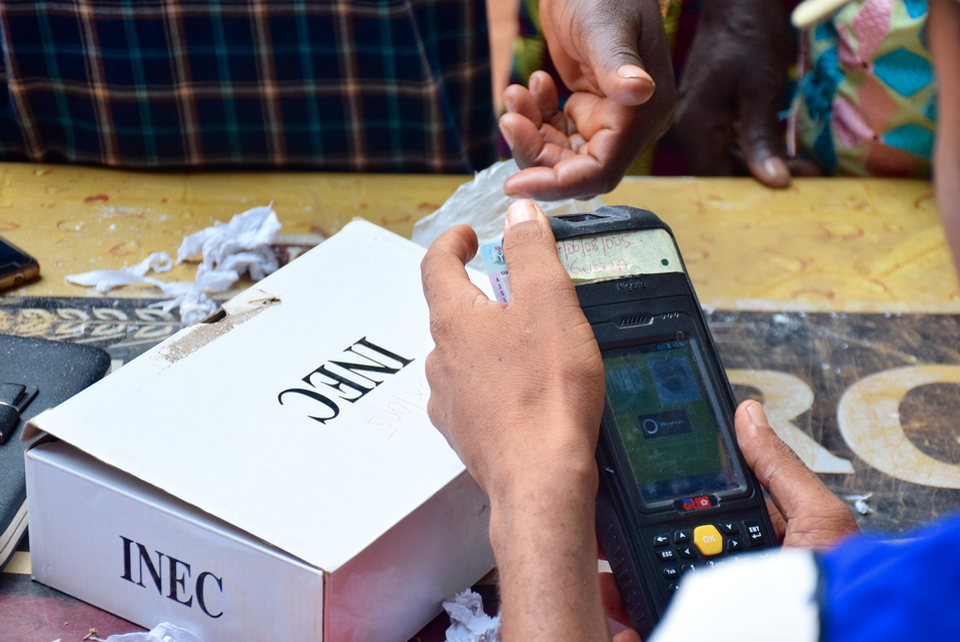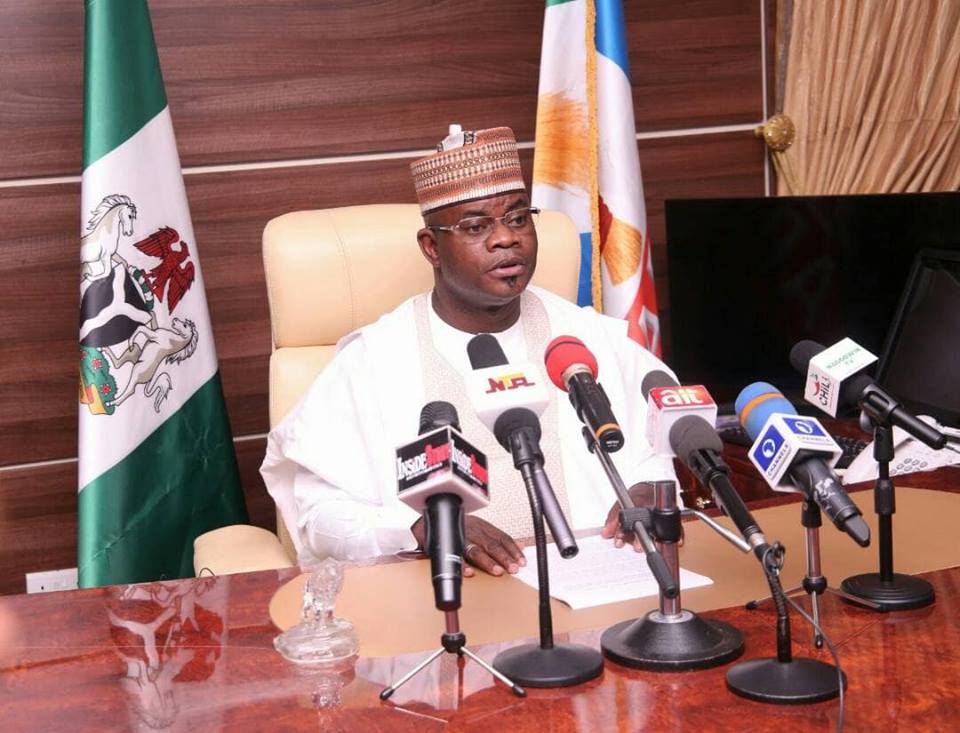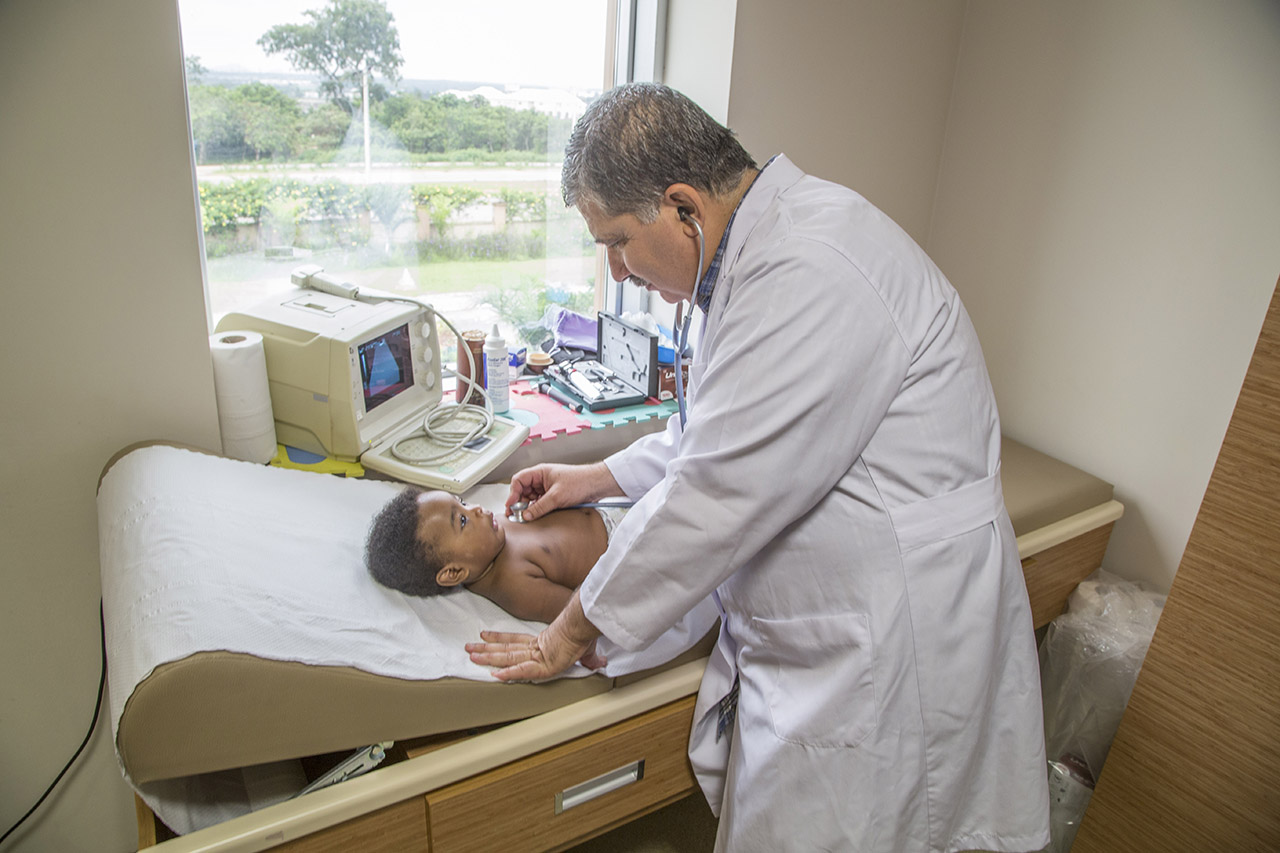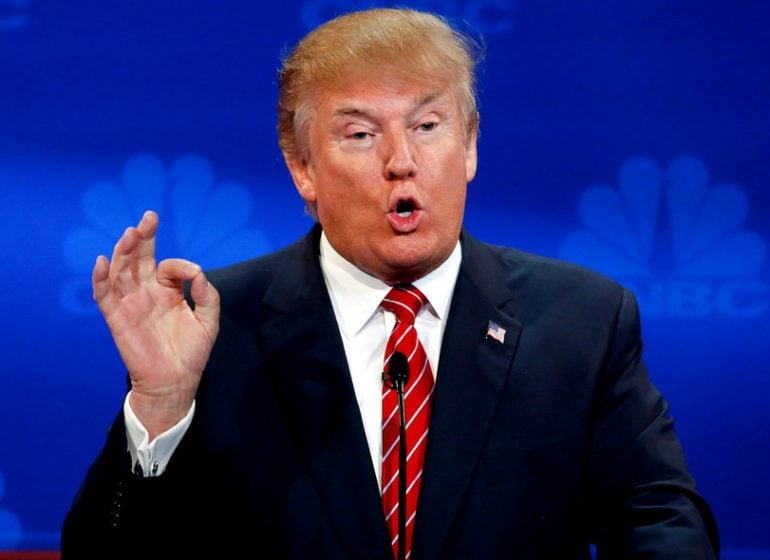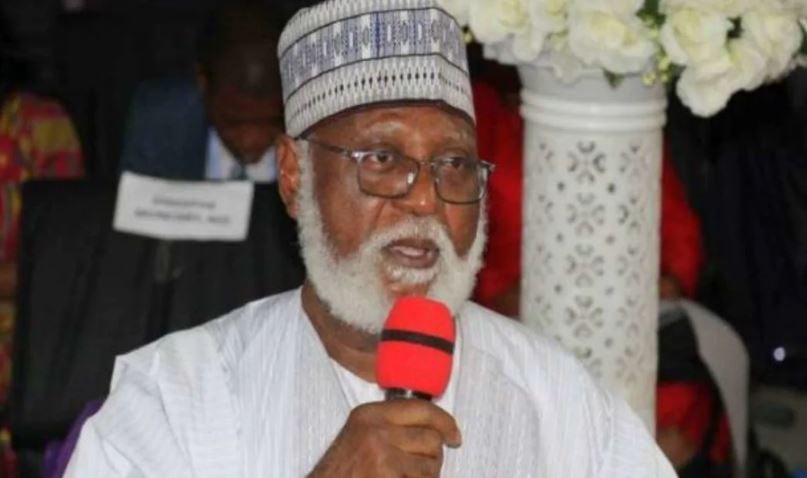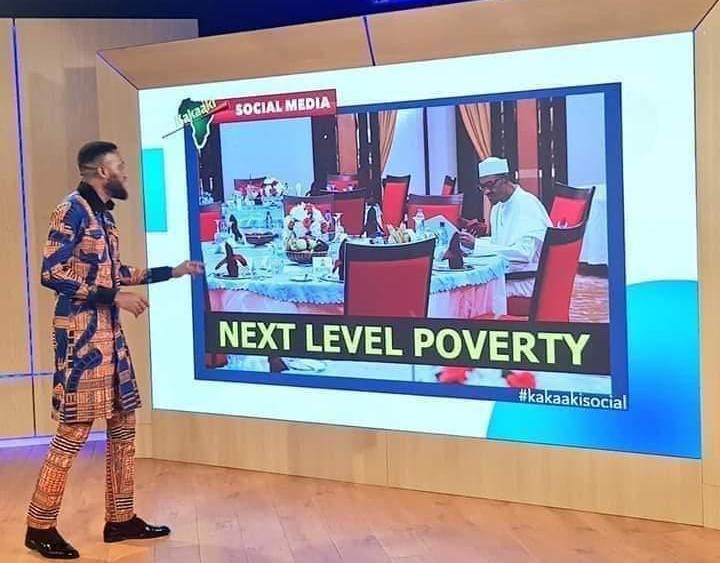Pupils at Zamuya traditional Almajiri school
BY IFEOLUWA OJO
Education is a fundamental human right. The relationship between education and development has been established such that education is now internationally accepted as a key development index. Over the years, Nigeria has shown a commitment to education with a dramatic expansion attributed to the waves of government programs that instituted tuition free access to primary education giving opportunity to all classes to be enrolled in school. Several of these National Policies and Reforms on education were primarily intended to eliminate cost barriers that impede participation especially for lower class groups.
As a result of the rise in enrolment,originating at the primary level enrolment of children quickly spread throughout other levels of education. For instance, while in 1972, an estimated 4, 391,197 primary school children were enrolled in school. In 2010, the enrolment increased to 20,681,805 (World Bank statistics). According to a multiple indicator cluster survey (MISC) 5, of 2016/2017 conducted by the National Bureau of Statistics (NBS) in collaboration with United Nations Children’s Fund (UNICEF) and other partners, 39.4%of Nigerian children of primary school age are currently enrolled in school. The progress made in expanding education in Nigeria is particularly important due to its effect in giving educational opportunities for children in rural areas and poor under privileged children.
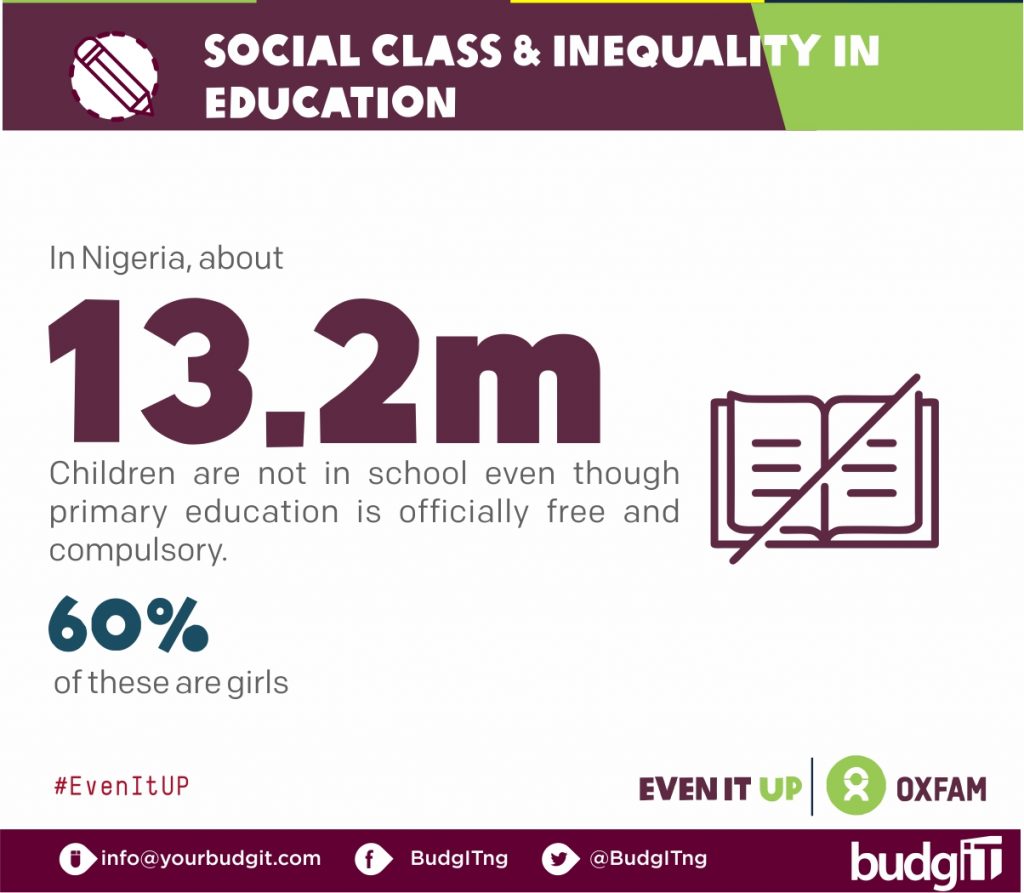
Advertisement
However, despite this impressive trend in enrolment, Nigeria lags in closing the gap of educational inequality between the poor and the rich. Nigeria has performed poorly in managing out of school children. In August 2018, the Federal Ministry of Education at the 63rd National Council on Education (NCE) meeting revealed that Nigeria is still home to highest number of out of school children with over 13.2 million children and particularly disturbing if the fact that 60% of the children are girls further showing that there are still inequality gaps in the education of the girl child in Nigeria. A significant proportion of these children enrol and drop out, due to poverty and poor-quality education.
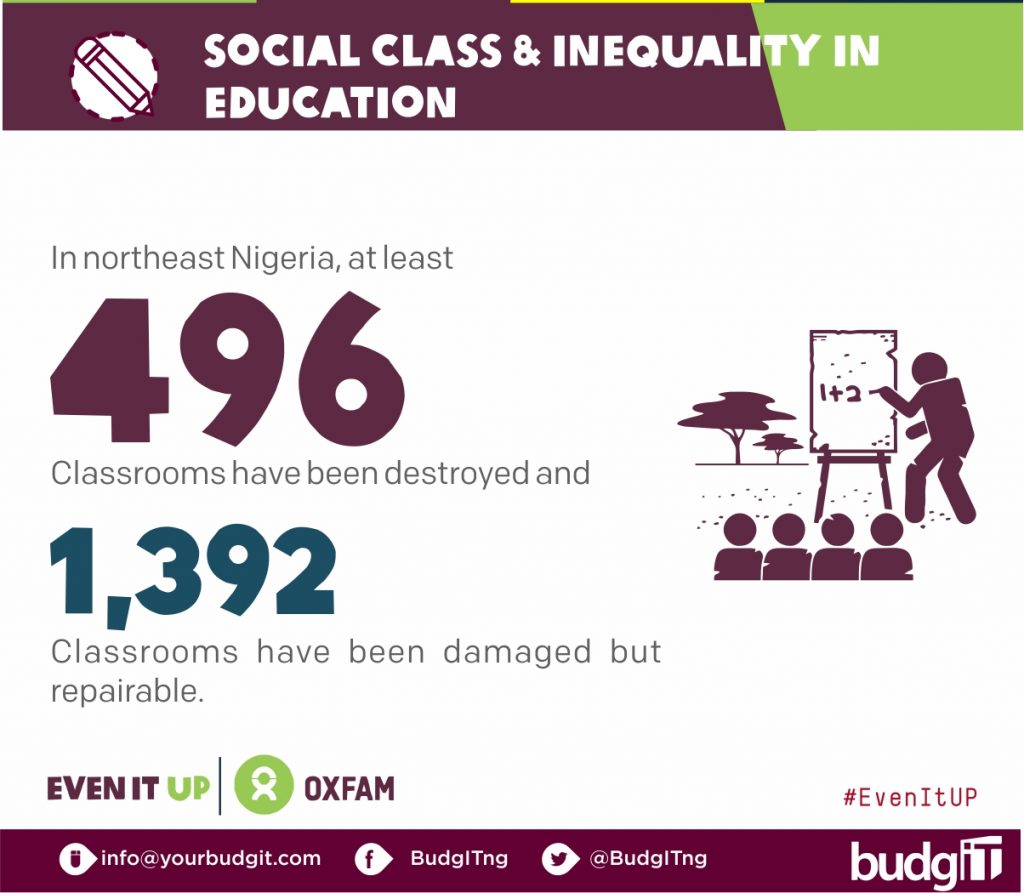
In Nigeria, enrolment of children into school and their academic achievement is largely dependent on the family’s Socio-economic status. Therefore, poverty is the main reason why several children remain excluded in education and why wealth of family is the most obvious determinant of progression to higher schooling as well as completion of education at all levels. Children with wealthier parents increase the odds of being enrolled into secondary education compared to their counterparts whose parents are not wealthy.
Advertisement
The NBS MICS report revealed that 52% of children of primary school age who are currently enrolled in school are based in urban areas while 33.75% are in rural areas. Enrolment of children into school is low among poor households due to their under privileged background which does not only directly influence their educational attainment but indirectly combines factors such as distance from school, quality of education offered, effect of tuition charges, family size, and structure which are all related to poverty that stalls growth in education. In poor regions of Nigeria, the greater the distance from school the more likely poor children will not attend school. Distance from school will determine if a child enrols in school at all, enrols at a late age, or completes basic schooling. Living thirty minutes to one hour away from school reduces the probability for primary or secondary school attendance which is further heightened by lack of free public transportation or high cost of transportation to and fro school. Moreover, other cost associated with schooling such as Parents Teachers Association fees, cost of uniforms, textbooks deter poor children from regularly attending schools which may lead to inadequate academic contents which in turn increases prevalence in academic failure. Poor parents are more likely to engage their children in child labour to assist in the financial condition of the family. These children engage in child labour before and after school and channel school and study time to work. This contrasts with children of wealthy families who study in conducive learning environment with increased access to educational materials like textbooks, computers, extra tutoring and other learning benefits.
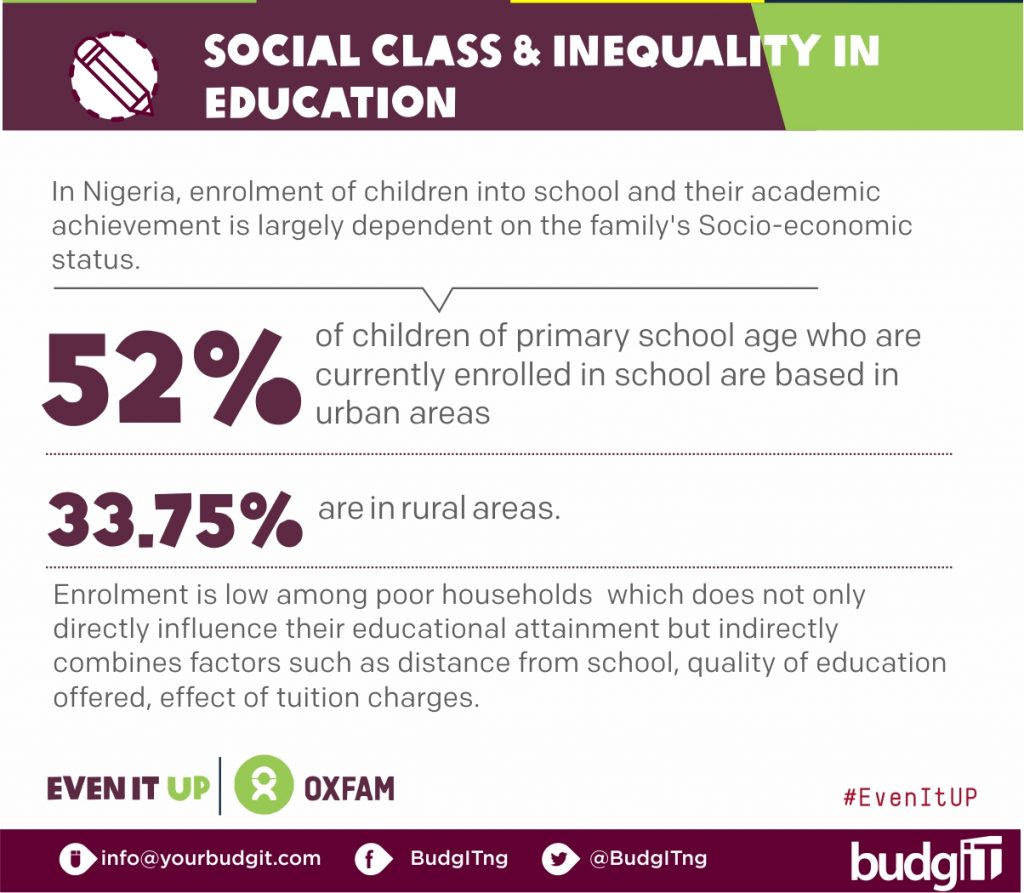
Although the Nigerian government has over the years implemented free education to increase access to education and overcoming illiteracy and ignorance, however this policy has not addressed the issue of equity in access to education in Nigeria. Education is used to perpetuate inequality. Millions of poor people are still being excluded from the processes and outcomes of education as the national literacy rate is currently 57%. There are acute shortages of infrastructure and facilities at all levels. Wide disparity persists in educational standards and learning achievements.Poor funding has been identified as one of the major reasons for the rot and challenges in the education sector, especially tertiary education, which has led to frequent strikes by teaching and non-teaching staff since the early 1990s.
Government needs to plug this gap by investing heavily in the education sector as a key development index. The allocation to the sector currently stands at less than 8 percent of the budget which is far below the standard of the UNESCO In cheon declaration of 15-20% budgetary allocation to the education sector.
Advertisement
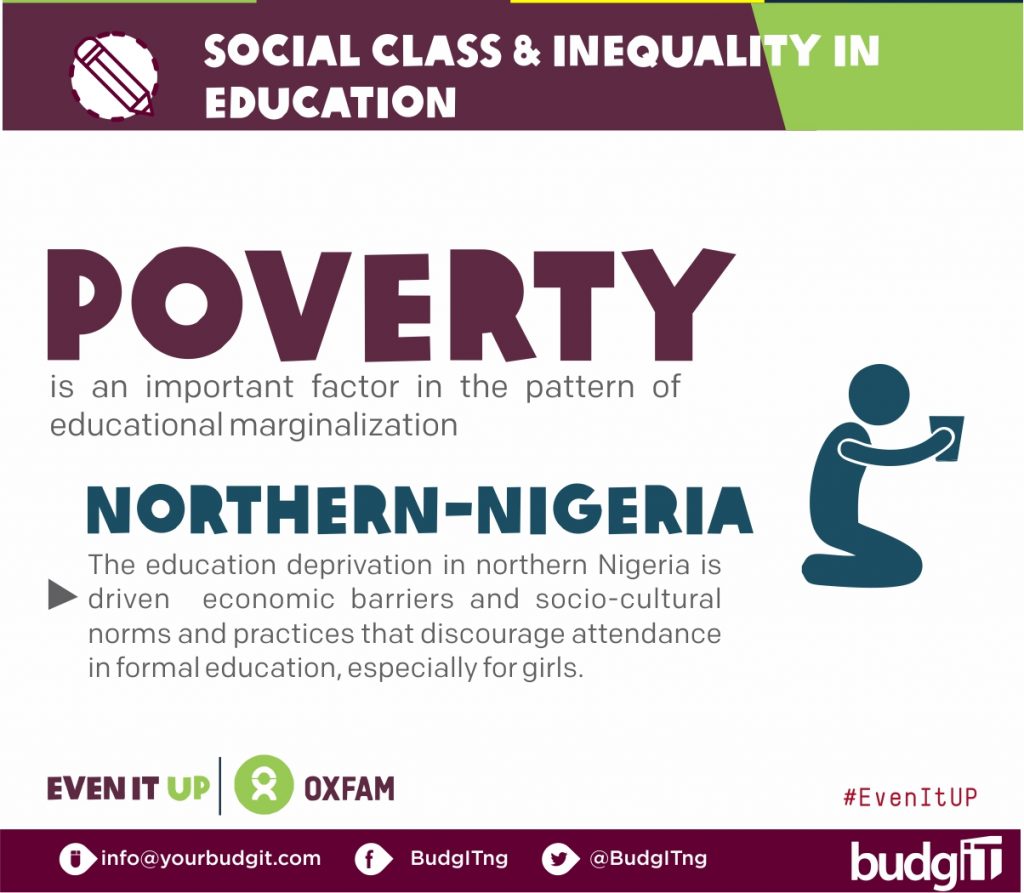
As we approach the election period, there is no better time for this issues to make headlines than now as it is expedient that conversations be structured on the widening gap of inequality in areas such as the widening gaps of access to education, the quality of education, girl child education, the lingering issue of Nigerian Universities poor global ratings, under-funding of the education sector, balancing the numbers of rural and urban child enrolment in school, the election season is a window of opportunity to get the key stakeholder to study undertones of the policy drafts of each candidate and assess their commitment to the education sector and beyond finely written policies to engage with them on how they are likely going to implement the policies
For the country to move forward and make significant progress there must be a comprehensive revaluation of its educational policies. Hence, to reduce the effect of wealth advantage in education, the government has to more efficiently manage public investments especially about redistribution of resources to benefit poor households.
We recommend that every candidate vying for key offices across the country be engaged by key sectoral professionals in the education sector on the policies and strategies they intend to implement to take the education sector out of the present miseries across all levels from the basic to tertiary levels.
Advertisement
Views expressed by contributors are strictly personal and not of TheCable.
